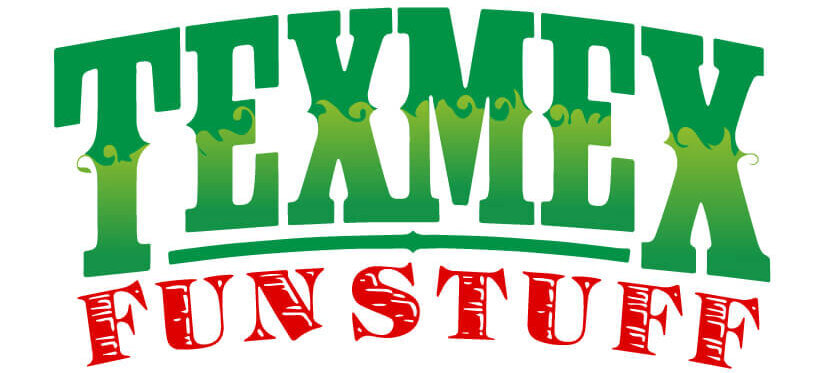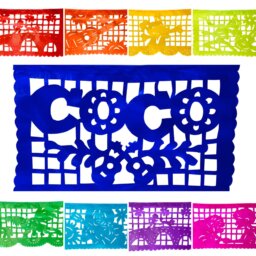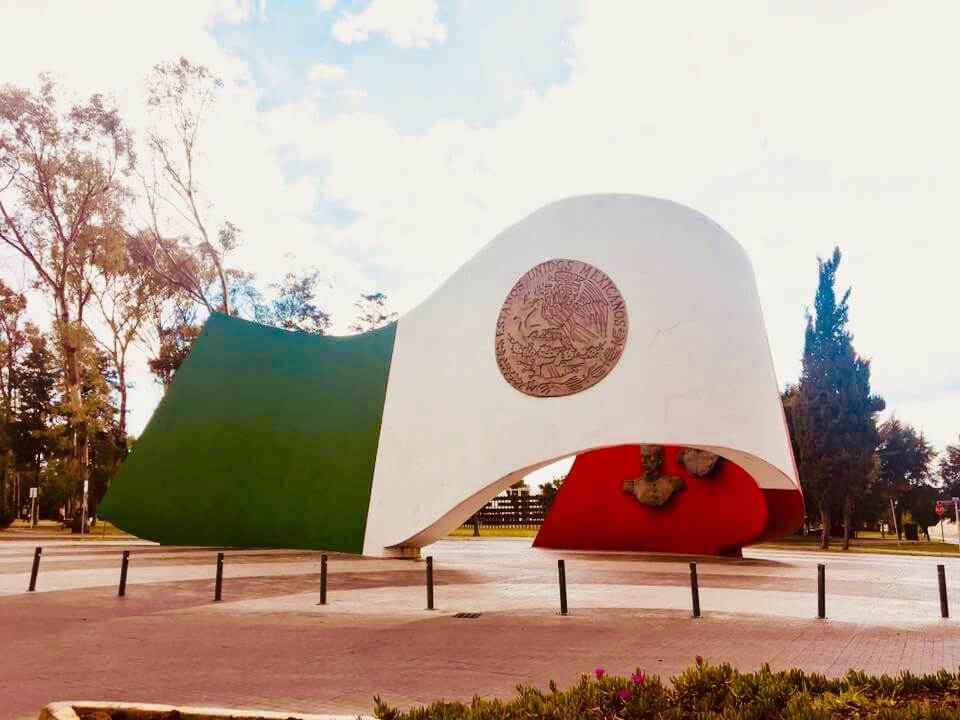
Cinco de Mayo has always been an excellent excuse to get together with my friends in the Texas springtime to eat Mexican food and drink margaritas. For years I thought that Cinco de Mayo was a celebration of México’s Independence Day. HA! Try September 16th! I was way off. Evidently loads of Americans make that mistake, too.
A few months ago, my journey through México landed me right smack dab in the birth canal of Cinco de Mayo …Heroica Puebla de Zaragoza in Puebla, México. If you haven’t been to the city of ‘Puebla’ in the state of Puebla and you hate churches, don’t go to Puebla! There is literally a church on every corner. Seriously, everywhere you turn there is a freaking church. ***Preacher’s Kid Alert***
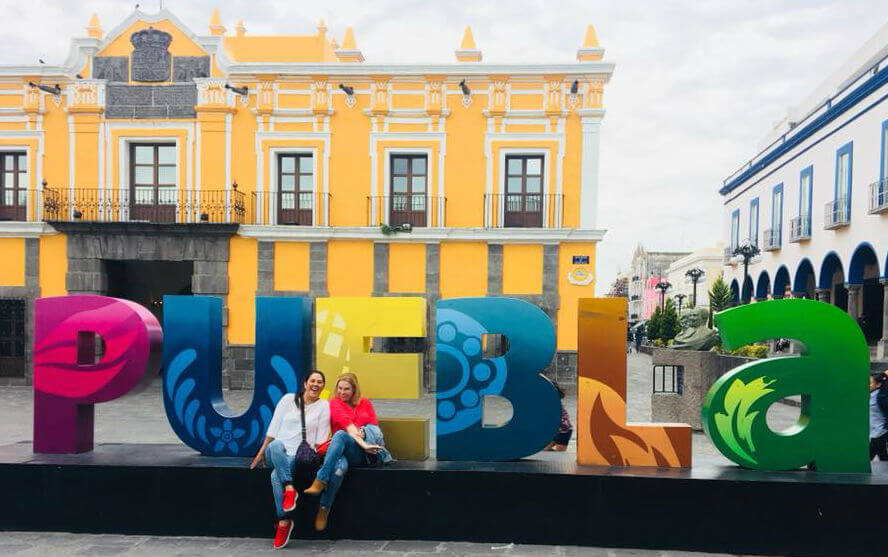
Other than the clamor of constant bell-ringing between all the churches every 10 seconds, Puebla is a beautiful city which is super clean, full of great people and amazing ceramics and food. It is also where the Battle of Puebla took place on May 5th, 1862.
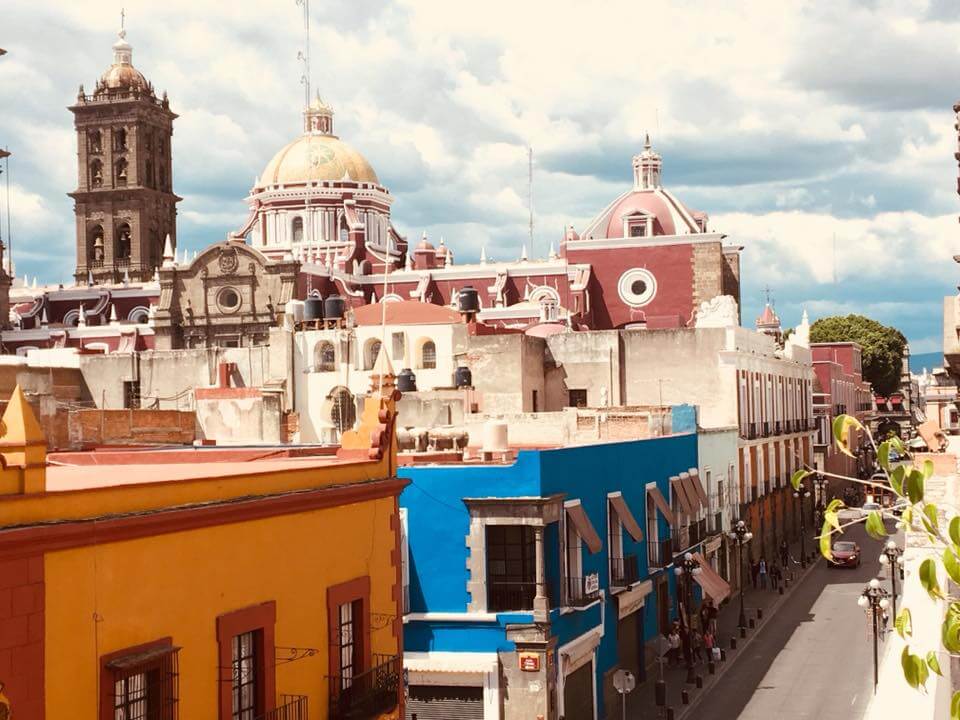
You may have already put two and two together that May 5th and Cinco de Mayo are one and the same. The celebration that we Americans love actually commemorates México’s victory over the French invasion during this famous battle in Puebla in 1862. I wanted to learn more about this Mexican situation/holiday that I’d been celebrating with margs and beer in the US since college!
While asking the locals where exactly the enormous Cinco de Mayo fiesta was going down, I was met with strange looks and shameful head shaking. I was genuinely startled to discover that Cinco de Mayo isn’t celebrated in México at all (outside of downtown Puebla, which is where battle reenactments still take place!).
ABSOLUTE ASTONISHMENT! Was this another made up holiday?! Like when Hallmark invented Valentine’s Day or Santa invented Christmas?! Just kidding-ish.
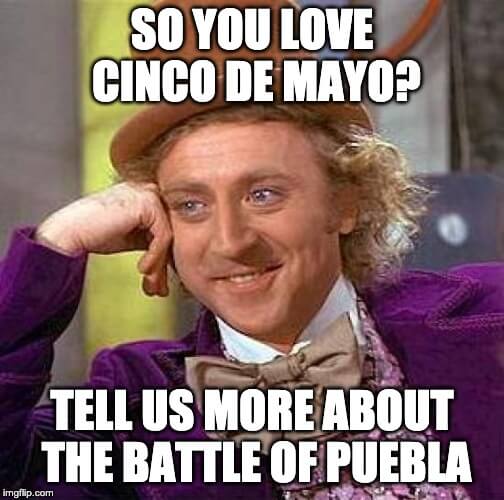
It occurred to me that my “research” was going to require a lot more than fajitas and a sturdy liver. I had to do actual historical homework. Damnit! So with a red solo cup full of margarita on the rocks in hand, I headed to the exact site of where the Battle of Puebla took place on May 5th, 1862.
I jumped in a taxi and in my best/worst Spanish said, “Take me to where the Cinco de Mayo Margarita Fiesta was invented – at once!” My completely unimpressed taxi driver drove me to the Northeast section of town…down cobblestone streets (past a few hundred churches), up the Heroes of Cinco de Mayo Boulevard and dropped me at the top of one of the tallest hills in the city.

There is this whole amazing city park up there that gives you a 360 degree view of Puebla! The ‘Centro Civico Cinco de Mayo‘ park includes two old forts (Los Fuertes), a gondola/funicular ride thing and lots of grass, fountains and multiple museums. I was particularly interested in the lovely gold plated museum!
?? It’s Cinco de Mayo everyday with Papel Picado at TexMex Fun Stuff on Amazon! ??
Was this really where the Battle of Puebla took place over 150 years ago? As luck would have it, the gold plated museum is called the Museum of the Battle of Cinco de Mayo. BINGO! I knew someone inside would help me understand the significance of this Battle/American/Mexican/Poblano holiday. Sure enough, the entrance to the museum was FREE that day (as most museums in México are) and a delightfully bilingual guide was assigned to assist me in my historical journey for a very small propina (tip)!
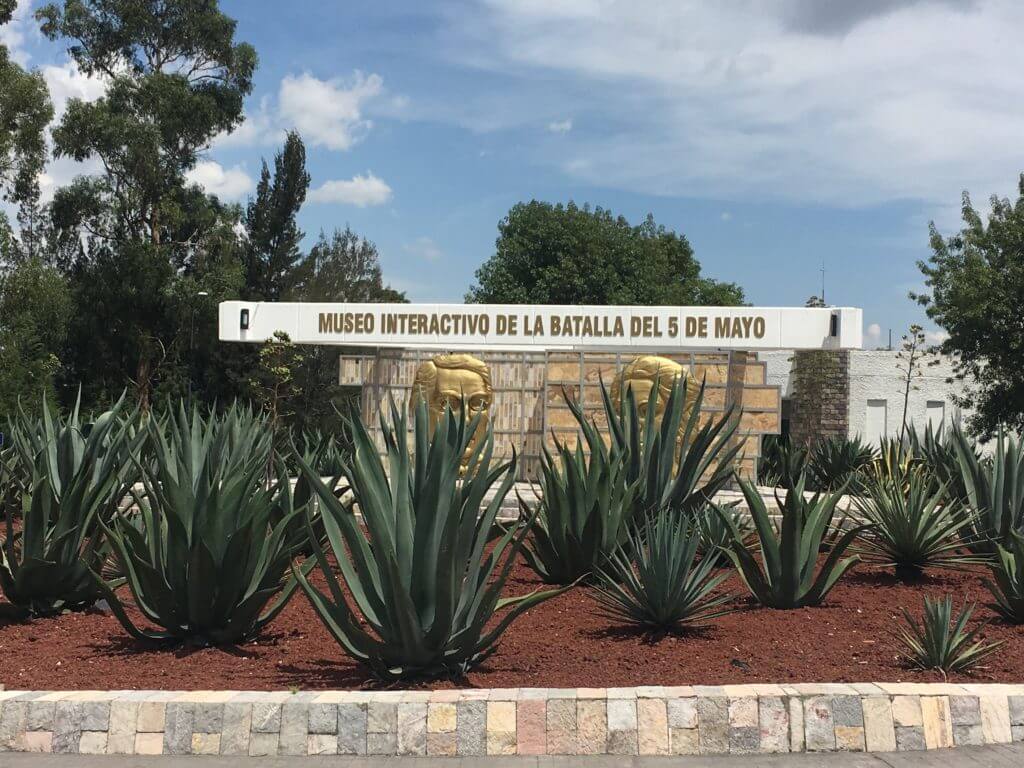
What is the Battle of Cinco de Mayo and Why Should We Give a Shit?
So my super informative guide tells me that “La Batalla del Cinco de Mayo” is also known as the “Battle of Puebla” and it lasted only 1 day! 6-8 hours to be exact – depending on who you ask. Here’s the backstory: In the mid-1800’s, Mexican civil wars, the US Civil War, general political chaos and fending off foreign powers (Remember the Alamo?) had more or less bankrupted México.
On July 17, 1861, President Benito Juaréz declared a suspension on all debt payments to foreign countries for 2 years to get the budget back on track. Specifically holding off payments to France, Britain and Spain. Well that pissed them off and the 3 countries immediately sent troops to the shores of Veracruz (located on the Gulf of México) demanding payment.
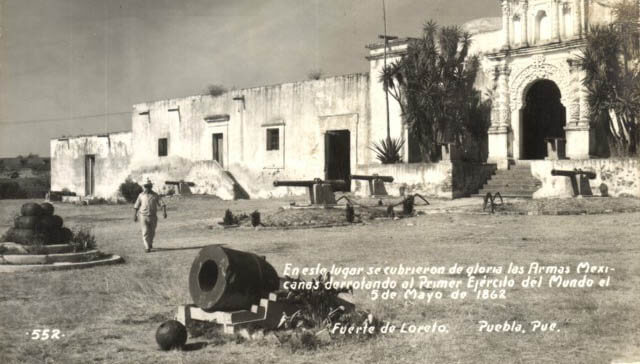
I Photo: Angelopolis.com
Britain and Spain successfully negotiated with the Mexican government and withdrew their forces, but those pesky French didn’t. French intentions clearly had little to do with a default on a loan. There are two schools of thought as to why:
1. Napoleon III (nephew of THE Napolean) wanted to topple the Juárez government to access Mexico’s resources and, in particular, to take advantage of the instability in the United States, then embroiled in its own civil war and unable to stop a French advance. Ooooooorrrrrrr….
2. The French were in bed with the American Confederacy and together, they figured that if France could take over México, the French and Confederates could have a whole slave-owning empire from the Mason Dixon line all the way down to Guatemala. So Napolean III used this debt deferment as an excuse to invade and overtake México to make all of his slave-owning dreams come true.
Either way, Napolean III directed 6,000-7,000 troops to march from Veracruz to Puebla to take over the city. The grand plan was to then head into the capital…the big beast…México City, for the ultimate takeover.
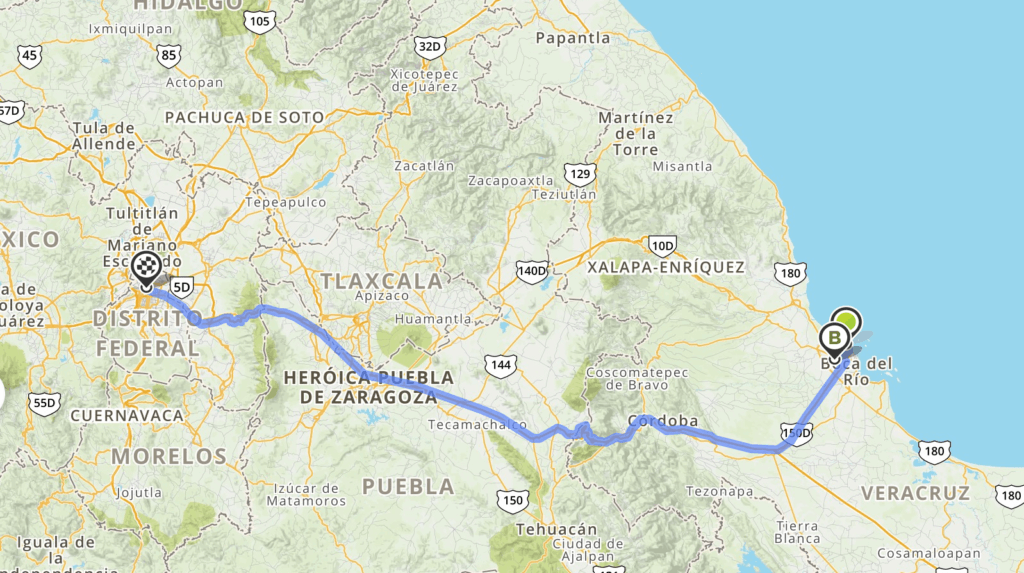
In response to this absolute shit ton of troops headed to “Puebla de Los Angeles” (as it was called then), President Juaréz rounded up just 2,000 troops to defend it and most of them were just untrained locals. Hey, they were bankrupt after all.
The very well dressed and organized French army began their assault on the two forts in Puebla. The Fort of Guadalupe and the Fort of Loreto (as I mentioned earlier) sit on top of the tallest neighboring hills in town. The 2,000 Mexican troops were split between these two forts with some hiding in churches throughout the city of Puebla.
The odds didn’t look so fabulous for México, but there were 4 things that Napolean III didn’t take into consideration: Tunnels, churches, deception and rain.
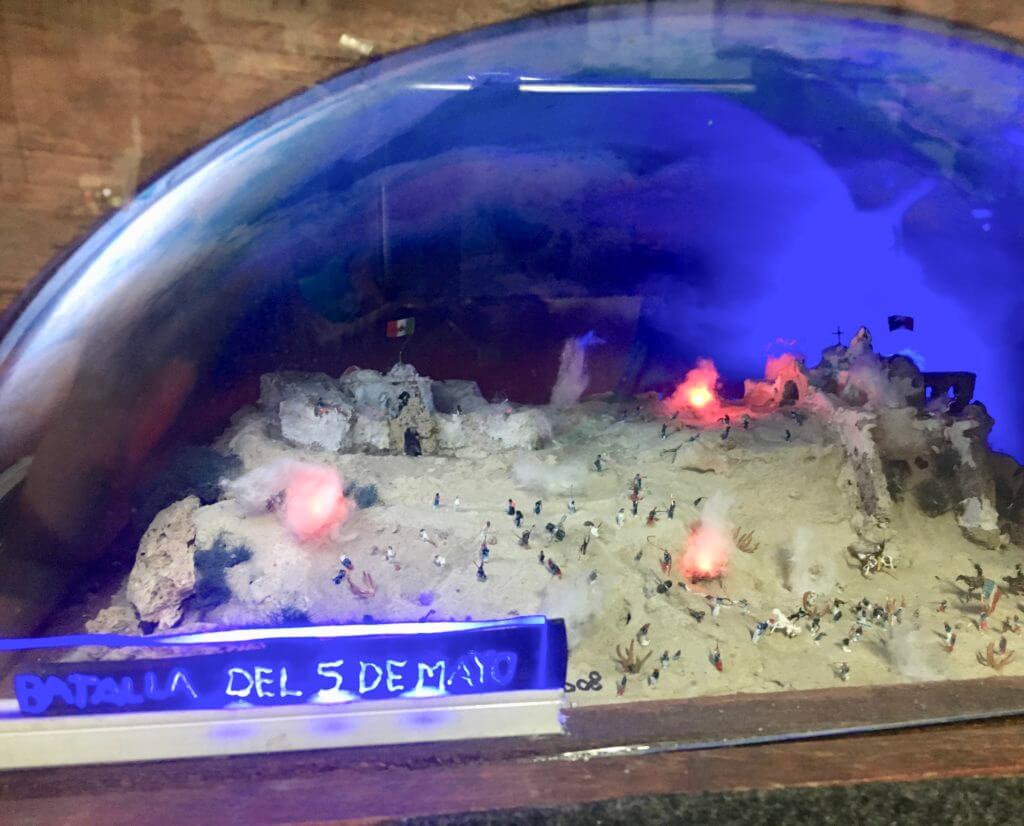
Photo: TexMex Fun Stuff
Here is where tunnels, churches, deception and rain come into play: Fort de Lareto and most of the churches in Centro were all connected by underground tunnels that the French troops were unaware of. In fact, these tunnels in total are 6 miles long (and had been forgotten about, but then just recently re-discovered in 2014). They are tall enough and wide enough to ride horses on through the whole system. PERFECT!
Back then, nuns, priests and soldiers used these tunnels to get around the city quickly without a whole lotta hubbub or the hot Mexican sun. The Mexican soldiers were easily able to run through these tunnels to and from Fort de Lareto with supplies and reinforcements from multiple churches.
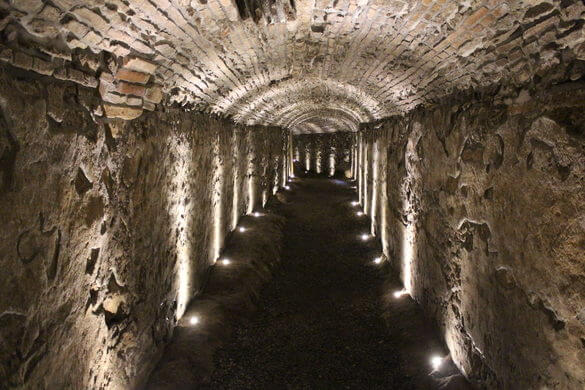
The French were focusing on Fort de Guadalupe, so the Mexican soldiers defended it by adding a steady stream of troops and supplies from the tunnels under Fort Lareto to attack from the outside. The French forces assumed that they were battling waaaaaay more soldiers than just 2,000. They were surprised and intimidated. The Mexican army was playing the perfect game of deception, literally underground.
The last important influence on the outcome of the battle was rain. May is the beginning of rainy season. Anyone who has spent time in México during rainy season knows when the rain begins every day…the afternoon.
The French made 3 surges throughout the day, but didn’t start the first one until late morning. #LAZY #BigMistake. The second and third attempts to take over the Fort of Guadalupe happened in the afternoon.
By the time the French made their 2nd attack on the Fort de Guadalupe, the pouring rain made the climb to the top impossible, let alone to be able to conquer the damn thing. Luck was a lady for México and after the 3rd unsuccessful and soaking wet attempt on the fort, the French forces accepted defeat and retreated back to Veracruz.
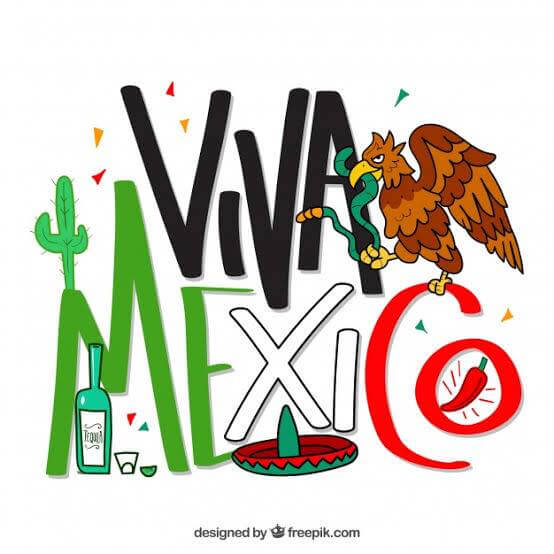
The Mexican forces were victorious in less than 6-8 hours under General Ignacio Zaragoza. BTW, Zaragoza was born in Texas when it was owned by Mexico – that makes him TexMex! He and his troops had successfully defended the Fort of Guadalupe and ultimately the country of México against 6,000-7,000 French troops. So the Prez renamed Puebla “Heroica Puebla de Zaragoza” (Heroic People of Zaragoza).
So, Why is Cinco de Mayo so Popular in the United States?
In the US of A, Cinco de Mayo has turned into a major American tradition and a minor holiday for Mexican-Americans to celebrate their heritage. Massive parades and fiestas commemorate the Little Mexican Army that Could that fateful May 5th in 1862. The fiestas always include a boatload of Mexican food, badass mariachi music, papel picado decorations galore, and of course, boozy treats.
In an in-depth book by David Hayes-Bautista titled ‘El Cinco de Mayo, An American Tradition’, he explains that the holiday in the United States isn’t Mexican at all. It was created by Mexicans living in California after the word spread up to the north of the victory in Puebla, but it has evolved over the years.
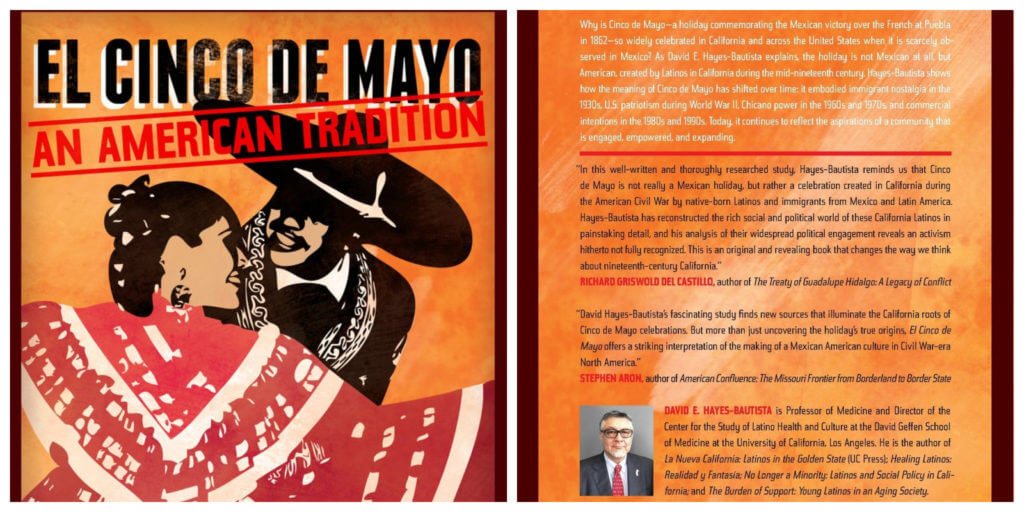
“Cinco de Mayo has shifted over time—it embodied immigrant nostalgia in the 1930s, U.S. patriotism during World War II, Chicano Power in the 1960s and 1970s, and commercial intentions in the 1980s and 1990s. Today, it continues to reflect the aspirations of a community that is engaged, empowered, and expanding.” – David Hayes-Bautista
I can speak from experience after working for a beer/wine/liquor distributor in Dallas that today in the United States – bars, restaurants and beer/wine/liquor companies continue to spread the “nostalgia” of Cinco de Mayo. Por que? Because any excuse to celebrate a victory means money! And Corona and it’s parent company, Grupo Modelo are all over that!

Here is a bit of boozy history: In 2012 the Anheuser-Busch and InBev clan bought Grupo Modelo, making it a powerhouse booze conglomerate. The US Department of Justice sued the corporation for anti-trust reasons citing more or less that they were creating a beer monopoly. The AB/InBev/Modelo guys had to sell off the Mexican beer ‘USA marketing and imports rights’ to Constellation Brands (who are marketing monsters) to fend off the feds.
You wanna know why America loves Cinco de Mayo? Because Constellation Brands decided to make a shit ton of money every spring. Seriously, they’re worse than Hallmark! Truth be told, as Hayes-Bautista mentioned, the “nostalgia” had commercial intentions leading back as far as the 80’s so I guess I can’t blame Constellation Brands entirely. Just a lil’ bit.

OK, soap box moment over. I finished the tour of the museum and headed to the forts to see if they had a bar in one or both of them. They did not. #LucilleBluthEyeRoll. The sun was setting over the always-smoking volcano, Popocatépetl and the city lights were coming on in the city below.
I called an Uber and headed down the Heroes of Cinco de Mayo Boulevard with a way greater appreciation for this town and the brave people (puebla) of Mexico. Now if they can turn a few of these churches into cantinas, I’d be a happy girl!
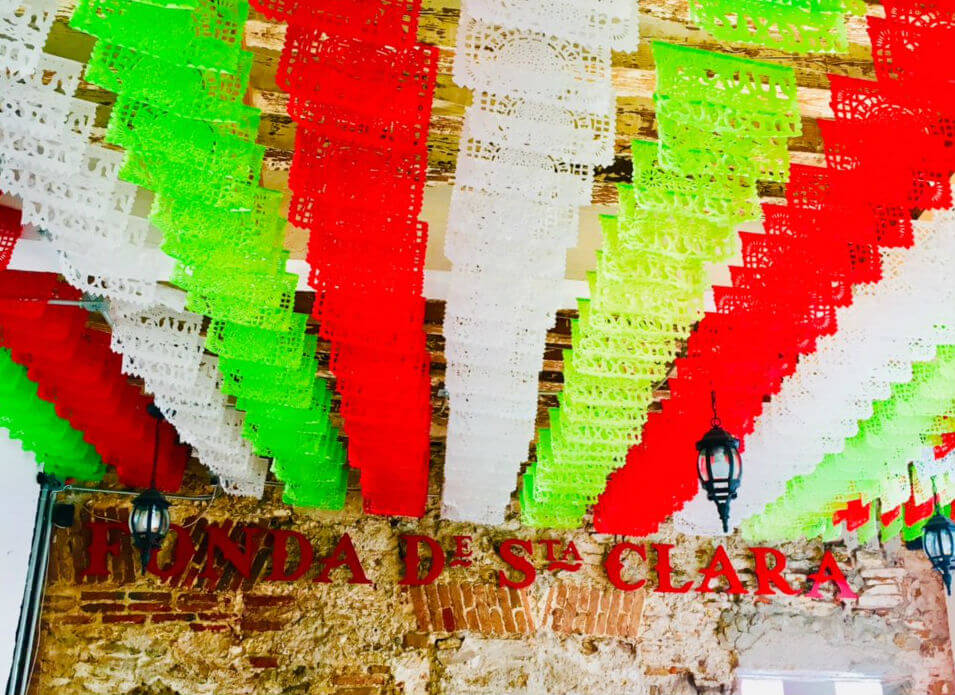
National Geographic said it well…”For Mexicans in Puebla, as well as Mexican-Americans in the United States, Cinco de Mayo has become a complex symbol of Mexican culture, resilience and character.”
So Cheers and Salúd to Puebla, México; to Cinco de Mayo and to the unyielding Mexican soldiers of the Battle of Puebla. Also, gracias and thanks to the Garcia family who showed us around their gorgeous city and set us straight about Cinco de Mayo! Ustedes son fabulosos!!
?? Experience Cinco de Mayo everyday with this Classic Cantina Style Papel Picado! Buy Yours Here. ??

?? Shop the TexMex Fun Stuff Papel Picado Collection ??
Are you looking for more inspiration from México? Check out the TexMex Fun Stuff Blog for more sights, sounds and badass-ness uncovered while exploring México searching for handmade fun stuff for you!
Related Posts
Dance of the Flyers and Birdmen vs. MayPoling and Pole Dancing
Finding La Sirena and The Little Mermaid Under the Sea
What’s the Deal With These Badass Mariachis?
5 Fun Historical Stories About Piñatas
My Lucha Libre Experience – Laughing, Crying and Screaming
My Story / The Actual History of Papel Picado Flags
